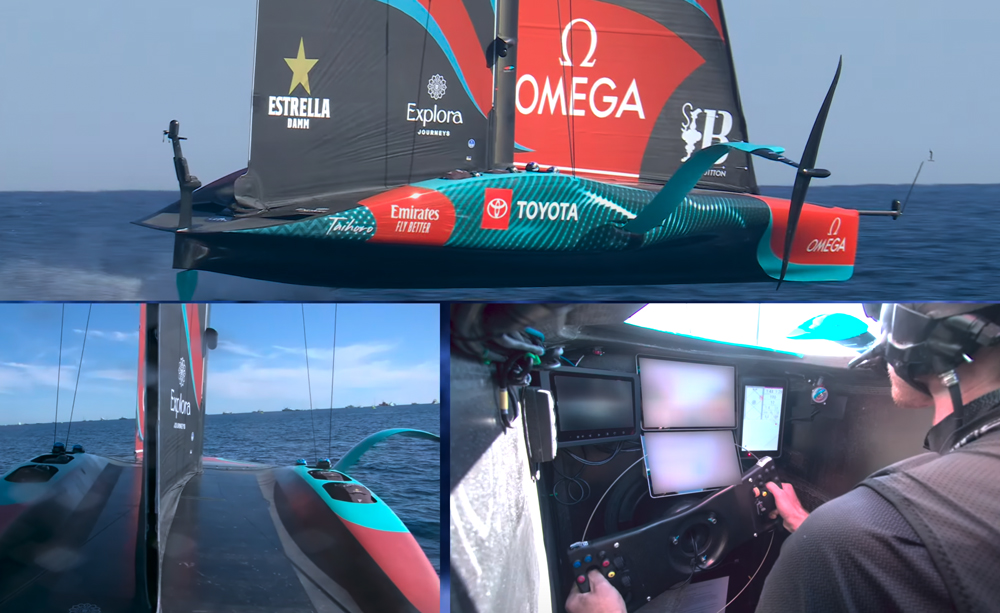I love to eavesdrop, so I was very excited that this year’s America’s Cup coverage included live audio from all the teams. And long before Emirates Team New Zealand beat Ineos Team Britannia to win the Auld Mug (for the third time in a row), I’d concluded that their communication style was a very important part of that victory.

Communicating during a sailboat race has been a particular fascination of mine for more than thirty years; my very first article for Sailing World magazine was entitled “Saying the Right Thing.” As an Olympic hopeful, I always tried to listen in on what my competitors were talking about—or NOT bringing up—while rigging or unrigging their boats. Light gossip? Boathandling fumbles? Ideas for speed improvements? Even silence could quickly indicate how much time they had together, team happiness levels, and where they were on the learning curve.
In a fully professional America’s Cup, of course, the differences were far more subtle. Both the Kiwis and the Brits had spent years practicing and refining their communication—because maneuvering a finicky foiling 75-foot boat around a short race course at 30-40 knots does not leave any time for idle chitchat. No surprise that the basics were extremely similar on both boats; no raised voices or talking over anyone else, consistent countdowns to maneuvers, efficient and precise word choices.
But over seven races, one difference became obvious: even when races were very close, the Kiwi discussions projected farther into the future. Here are two specific examples of what was NOT said on the Kiwi boat.
- Both teams switched helming duties for every tack and jibe, but only the British actually mentioned the transition from “my wheel” to “your wheel.”
- After the countdown to each maneuver, the Brits almost always added on a boathandling detail (like “board up” or “board down”).
Perhaps this was just personal, like two writers who choose different words to describe the same scene; even at such an elite level, one sailor’s necessary detail might be noisy distraction for another. From the outside, though, it sure looked like what they didn’t say was an integral part of the Kiwi win—because it freed up valuable seconds for a deeper conversation.
So, to help my stories “succeed,” I’m taking away the following lessons from this exciting series:
1. Eliminate chatter about “routine” maneuvers; leave that “off the page”
2. Focus on longer-term decisions/big-picture ideas
And, most importantly of all:
3. The less you say, the more polished the work appears.
Communication choices are often unconscious, and I have no insider knowledge about how each team’s playbooks developed. So it’s possible these subtle differences just… happened. But whether we’re talking about books or boats, professionals don’t rely on coincidence. Whether writing or sailing, it pays to make every word count.
And one final piece of trivia: It was the first America’s Cup for the Brits since this guy was in charge.
Got a thought about communications, on boats or on the page? Add it to the comments below, or send me an email. I read every single one, with gratitude. And even if you don’t have anything to add, thanks for reading!